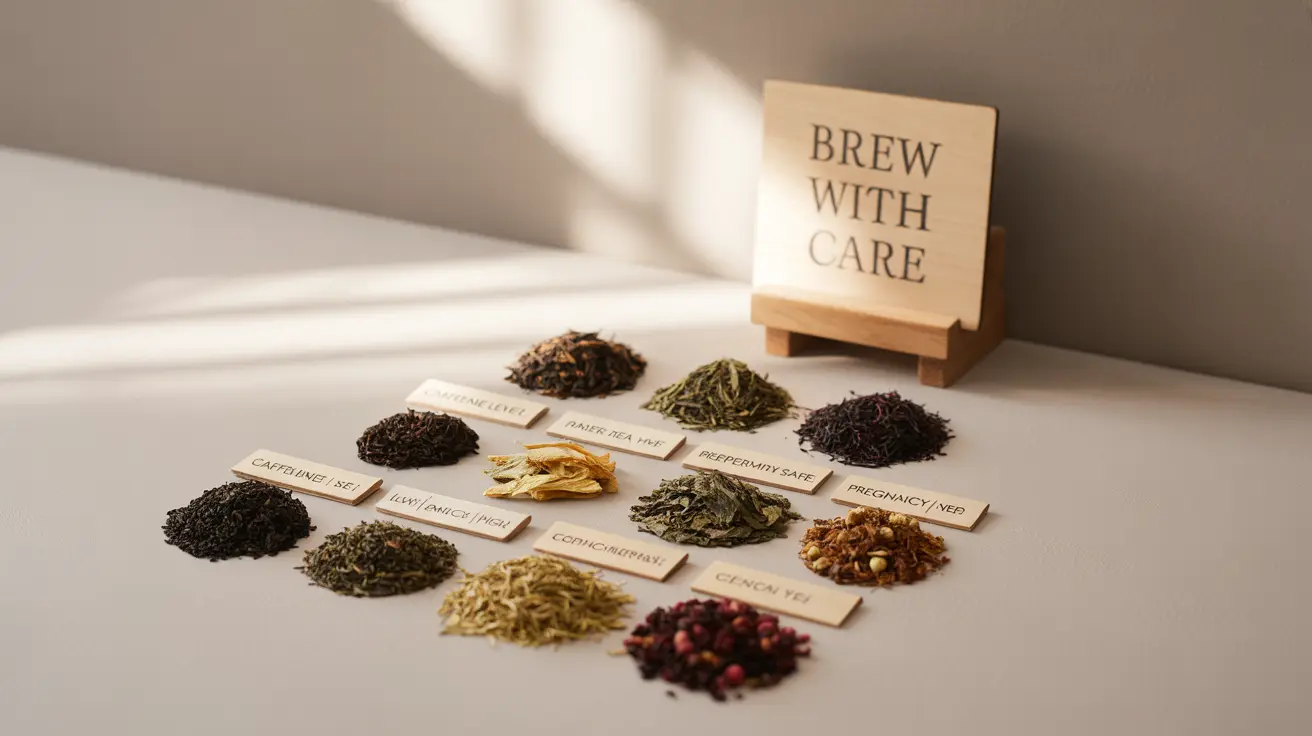For many expectant mothers, the question of whether they can drink tea while pregnant is a common concern. Tea has been a beloved beverage for centuries, but pregnancy requires careful consideration of everything we consume. Understanding which teas are safe and how much you can drink is essential for both maternal and fetal health.
This comprehensive guide will help you navigate tea consumption during pregnancy, covering everything from caffeine content to safe herbal alternatives, ensuring you can make informed decisions about your beverage choices.
Understanding Caffeine Content in Tea During Pregnancy
When it comes to regular tea (black, green, or white tea from the Camellia sinensis plant), the primary consideration is caffeine content. Healthcare providers generally recommend limiting caffeine intake to 200mg per day during pregnancy. Here's what this means for different types of tea:
- Black tea: 40-70mg caffeine per 8oz cup
- Green tea: 25-35mg caffeine per 8oz cup
- White tea: 15-30mg caffeine per 8oz cup
This means you can typically enjoy 2-3 cups of regular tea daily while staying within safe caffeine limits. However, remember to account for other sources of caffeine in your diet, such as chocolate or soft drinks.
Safe Herbal Tea Options for Pregnant Women
Several herbal teas are considered generally safe during pregnancy when consumed in moderation:
- Ginger tea: May help with morning sickness
- Peppermint tea: Can ease nausea and digestive issues
- Rooibos tea: Caffeine-free and rich in antioxidants
- Chamomile tea: Can help with sleep and relaxation
- Red raspberry leaf tea: Traditional pregnancy tea (consult your healthcare provider first)
Herbal Teas to Avoid During Pregnancy
Some herbal teas can be harmful during pregnancy and should be avoided:
- Sage tea
- Parsley tea
- Licorice root tea
- Black cohosh tea
- Blue cohosh tea
- Dong quai tea
Green Tea and Pregnancy Considerations
While green tea offers numerous health benefits, pregnant women should be aware of specific considerations. Green tea can affect folic acid absorption, which is crucial for fetal development. To maximize folic acid absorption, consider drinking green tea between meals rather than with them, and ensure you're meeting your daily folic acid requirements through prenatal vitamins.
Tips for Safe Tea Consumption During Pregnancy
Follow these guidelines to enjoy tea safely during pregnancy:
- Check tea blend ingredients carefully
- Choose organic teas when possible
- Avoid unknown herbal blends
- Keep track of daily caffeine intake
- Stay within recommended serving sizes
- Listen to your body's responses
Frequently Asked Questions
How much tea can I safely drink each day while pregnant without harming my baby?
You can safely consume 2-3 cups of regular tea daily, keeping your total caffeine intake below 200mg from all sources. For herbal teas, stick to 1-2 cups of pregnancy-safe varieties per day.
Which herbal teas are safe during pregnancy, and which should I avoid?
Safe options include ginger, peppermint, rooibos, and chamomile tea. Avoid herbs like sage, parsley, licorice root, black cohosh, blue cohosh, and dong quai, as these may be harmful during pregnancy.
Does drinking green tea during pregnancy affect folic acid absorption or increase risks for my baby?
Yes, green tea can interfere with folic acid absorption. To minimize this effect, drink green tea between meals and ensure you're taking your prenatal vitamins as prescribed by your healthcare provider.
What are the risks if I drink too much caffeine from tea while pregnant?
Excessive caffeine intake during pregnancy has been associated with increased risk of miscarriage, low birth weight, and other complications. Stick to the recommended limit of 200mg of caffeine per day from all sources.
Should I choose herbal tea or regular tea during pregnancy, and how do I know if a tea blend is safe?
Both can be safe when chosen carefully. For regular tea, monitor caffeine intake. For herbal teas, stick to well-known, pregnancy-safe varieties and always check ingredients. When in doubt, consult your healthcare provider about specific tea blends.




